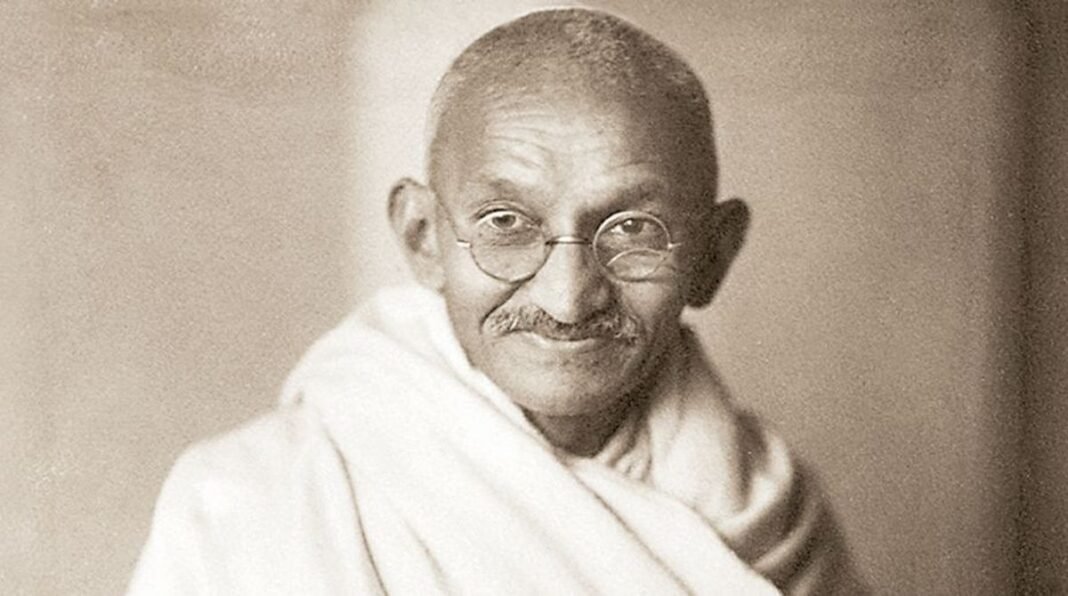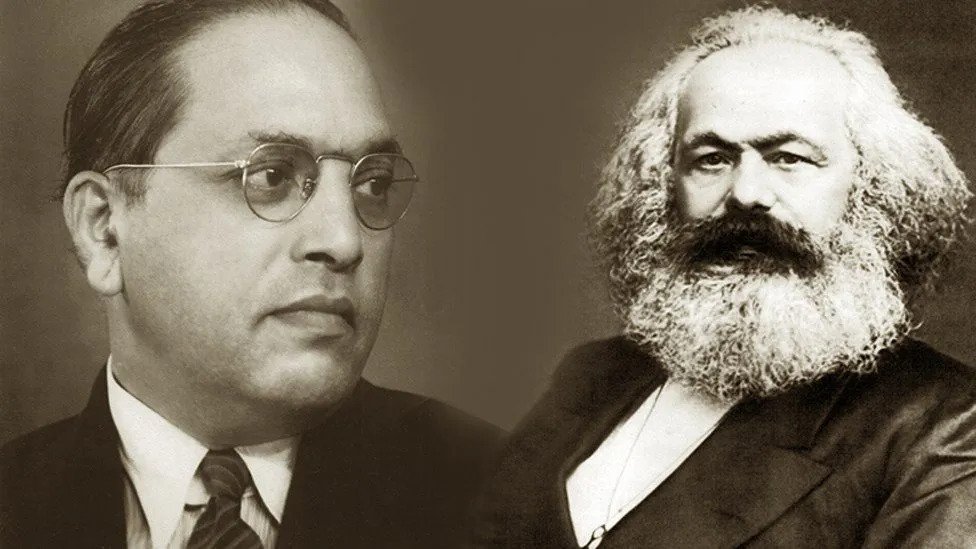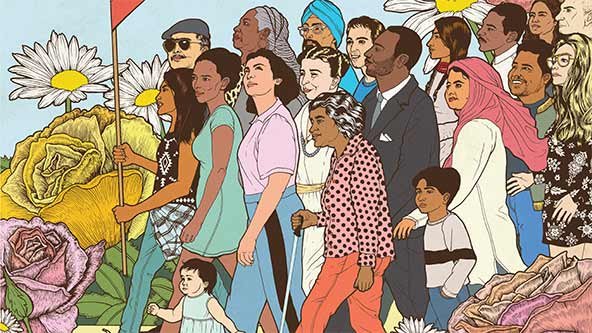By: Salil Saroj
“Certain men turn the world upside down, and history changes bits direction, to an extent, to achieve balance in favor of survival of human beings, for a time, until the death wise possesses whole people’s, led by ambitious leaders upset the till, while our globe seemingly goes round but is really threatened with imbalances and is nearly drowned in chaos, portending the end of the world itself….. The men who change the main trend of an age towards good are archetypal men. In our century, one such man among few others in the world, like Tolstoy, Lenin, and Tagore, was Gandhi”. I call these men world changers:-Mulk Raj Anand.
Definition:
The twin cardinal principles of Gandhi’s thought are truth and non-violence. It should be remembered that the English word “Truth” is an imperfect translation of the Sanskrit “Satya” and “non-violence “an even more imperfect translation of “ahimsa”. Derived from “sat” that which exists- “Satya” contains a dimension of meaning not usually associated by English speakers with the word “truth”.
There are other variations, two, which we need not go into here. For Gandhi, truth is the relative truth of the truthfulness in word and deed, and the absolute truth- the ultimate reality. This ultimate truth is God (as God is also truth) and morality- and the moral laws and code-its basis. Ahimsa, for from meaning mere peacefulness or the absence of overt violence, is understood by Gandhi to denote achieve love- the pole opposite of violence, or “Himsa”, in every sense. The ultimate station Gandhi assigns non-violence stems from two points. First, if according to the divine reality all life is one, then all violence committed towards another is violence towards oneself, towards the collective, whose self, and thus “self-destructive and counter to the universal law of life, which is love, second, Gandhi believed that ahimsa is the most powerful force in existence had ‘Himsa’ been superior to ‘ahimsa’, humankind long ago have succeeded in destroying itself. The human race certainly could not have progressed as far as it has, even if universal justice remains far off the horizon. From both viewpoints, non -violence or love is regarded as the highest law of humankind. Gandhian Philosophy is not only simultaneously political, moral, and religious, it is also traditional and modern, simple and complex. It embodies numerous Western influences to which Gandhian was exposed, but being rooted is ancient Indian culture and harnessing eternal and universal moral and religious principles, there is much in it, is not at all new. This is why Gandhi could say “I have nothing new to teach the world. Truth and non-violence are as old as hills’. Gandhi is concerned even more with the spirit than with the form. If the spirit is consistent with truth and non -violent form will automatically result. Despite its anti-westernism; many hold its outlook to be ultra- modern, in fact ahead of its time, even far ahead. Perhaps the philosophy is best seen as a harmonious blend of the traditional and modern. The multifaceted nature of Gandhi’s thought can also easily lead to the view that it is extremely complex. Perhaps, in one sense it is. “The four words, truth, non-violence, Sarvodaya and Satyagraha and their significance constitute Gandhi and his teaching.”
“If I have the belief that I can do it, I will surely acquire the capacity to do it, Even if I may not have it at the beginning.”
Role:
“You must be the change you want to see in the world.”
We are at crossroads of history. Learning lessons from the past, we have to adopt innovative approaches for ushering in social change. We have to grow beyond the sectarian considerations of caste and religion and strengthen the secular ramparts we guard. It is time to turn the tide in favor of idealism, large heartedness and collective effort for national reconstruction. As partisan approach in the bane of nation’s progress and community frenzy in the nature of caste, religion leads to social and political disintegration, it is high time that we learn lessons from the past and follow the path of Gandhi.
The attainments of rights of man, which we have defined as fundamental human rights in our constitution were to promote not only liberty and equality for fraternity in our society which had been divided through caste system by our ancestors and further sub divided by our rulers and into tribes, religions and classes. The Gandhian sentiment of “Love one another” which was to be the undertone of the new dissension was forgotten. We at home might remind ourselves that throughout his political life. Gandhi persisted in preaching non-violence, fasted several times against the division of religion by the ruling power in pursuit of their policy of Divide et imperia: and risked his life by going into the thick notes led by the Muslims and Hindu communalists.
The Gandhian constructive programme was illustrative, and with the changing times and situations, new programmes, new ideas and innovative approaches will have to be incorporated to fulfill the aims and path to follow. The details have to be worked out by each generation, keeping in view the vicissitudes of time and circumstances. Gandhi was never dogmatic and he was ever changing in his experiments with truth.
“It is better to fail in originality than to succeed in limitation.”
“He who is afraid of people’s censure, will never be able to do anything worthwhile while highlighting some of the neglected dimensions of human existence, Gandhi’s vision blinded to him to several others. He either ignored or took a dim view of the intellectual, scientific, aesthetic, sensuous, and other aspects of life. He rarely saw a film, read a book of poetry, visited an art gallery, watched a game, or took any interest in history, archaeology, modern science, wildlife, unspoilt nature and India’s natural beauty. This was not because he was intellectually in curious, for he showed remarkable experiment vitality in the matter the most interested him, but because his moralistic vision prevented him from seeing the significance of these and other activities. For Gandhi the care of the soul was a full-time fob requiring undivided attention, and the arts and science were relevant only to the extent that they promoted the supreme goal. Such as a single minded view of life naturally generated enormous energy and enabled him to explore moral and spiritual life in great depth and without distraction, but it also led both to the devaluation of other human pursuits and forms of excellence and the lack of an analytical and wider perspective on the nature and relative significance of the moral and spiritual life itself.
His theory of human nature could any explain savagery as a temporary loss of humanity capable of being sent night by an appropriate surgery of the soul. When he was confronted with the depths and extent of inter-communal brutality, he felt morally discontented and could not make sense of it. As we saw, he fought an extraordinary courageous battle against it, but his victories were temporary, lacked in situational permanence, and remained heavily dependent on his increasingly deciding charisma and diminishing good will of his morally overstretched countrymen.
As Gandhi grew older, his views began to change. He saw that the state could be an instrument of social justice and equality, and that it needed the armed forces. And he also saw that violence was sometimes not only practically unavoidable but also moral, and needed to be judiciary combined with non-violence in a balanced theory of social change. Gandhi’s impoverished view of human life prevented him from appreciating the … Principles and internal dialects of modern civilization. His critique of it made many telling points and exposed its racist, imperialist, violent and irrational underside, but it also missed out and distorted a good deal. Gandhi was too realistic not to see this and kept modifying his views. But his heart hankered offer the simplicity of rural life and remained in tension with his head.
Relevance:
What is the relevance of Gandhi in this all-pervading materialistic, agnostic and consumerist culture? It is precisely these three tendencies. Gandhi fought all his life. It is a fact that repudiation of one philosophy at a given time does not mean death or irrelevance of it. The men and women who moved the world were mostly either crucified, burnt alive, or were branded heretic or excommunicated still independent ensuing and pursuit of truth and to express themselves against injustice were continued in all ages, probably with added vigor.
“An eye for eye will make the entire world blind “.
The entire world is passing through the phase of suspicion, hegemony and intolerance. The Gandhian method of Satyagrah applied by many of the civil societies proved that it can still fight against the unruly and immoralist governance. The economy has gone to nadir and we in retrogrades are trying to being up the cottage industry and gram Udhyoga to make the development programmme more inclusive. His views on education- “ Essence of education lies in drawing out the very best that is in you “ has compelled the authority in power to design the educational framework in such a holistic manner that every being is given ample opportunity to grow in confidence and make the best use of his prismatic talent and unearthed knowledge.
“Nothing is politically right which is morally wrong”. Comprehending the apprehension of lurking fear and eminent defeat of all the archaic and irreversible policies, the government all over the world is now adopting a sustainable, people’s choice based policies and making the democracy for the sake only form of government more participative and vocal.
Citizens are the real jewel of any nation and nightly quoted the ex-president of the USA; Roosevelt.
“Don’t ask what the country has done for you; rather ask what you have done for the country”.
Imbibing the protestant ethic and mission any zeal of putting the nation ahead of all other amenities with religious unshakable will, the countrymen can steer the nation on the path of universal success.
“Mass disciple is an essential condition for a people” and this maxim was well elucidate the relevance of Gandhian philosophy in contemporary of Gandhian philosophy in contemporary world.
Following operations of methods, fearlessness and commitment to the basic ideas of Gandhi, we have to plan our programme and chalk out strategies which are relevant to our times. It is the people’s initiative and people’s power and social action that would strengthen democracy and Gandhism.
“Vaishnav jan to tene kahiye jay peer parayee jaaney ray,
Par dukhey upkar karey teeyey, man abhimaan na anney eay”
-Narsi Mehta. (An idea human being feels and understands the pain of others does good to others, especially to those who are in misery, and does not let pride enter his mind)
(The writer is an Executive Officer of Lok Sabha Secretariat, Parliament of India, New Delhi and can be contacted at 9968638267)












